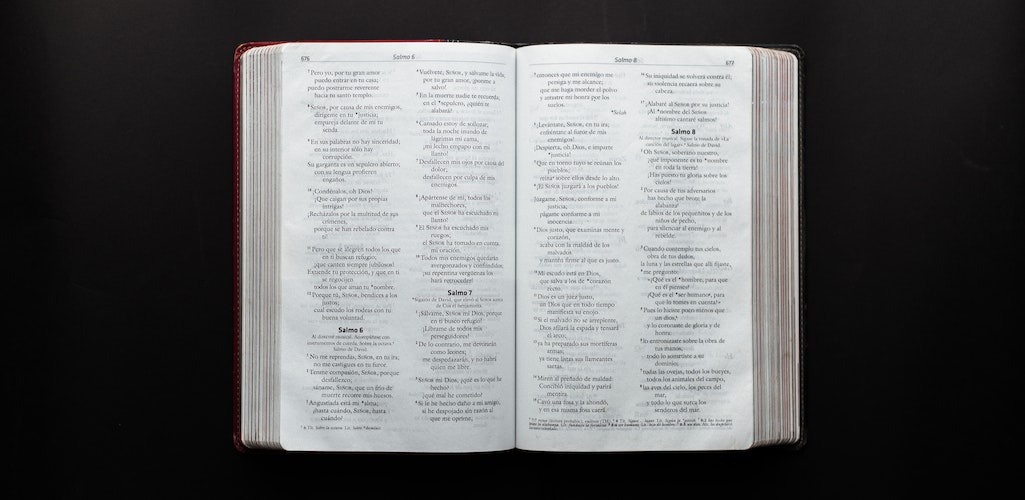Cognate Truths of 2 Peter 1

* Editor's note: "Cognate" in this context means "related" or "connected"
Peter’s first epistle was addressed to the dispersed Jewish believers in the places named in the opening verse, and the second epistle is addressed to the same (2 Peter 3:1), but it is also addressed to “them that have obtained like precious faith with us” (2 Peter 1:1), so that we do well to avail ourselves of the precious ministry that the Spirit of God sent to believers among God’s ancient people through the Apostle to the circumcision. The apostle’s own summation of his first letter is, “This is the true grace of God wherein ye stand” (1 Peter 5:12); and he writes his second letter that the saints might ever have before them “the present truth” (2 Peter 1:12).
Grace and Peace (2 Peter 1:2)
In invoking “grace and peace” upon the saints, Peter joins the great apostle to the Gentiles who, in every epistle bearing his name, uses the same words in some form or other in his opening address. Every saint of God stands before Him in grace, but he also needs the resources of divine grace to sustain him in every aspect of his life in this world. It is the same with the assembly of God. Human resources are of no avail in divine things, only the resources of God’s grace in Christ can sustain His assembly, but these resources are infinite and readily available in our exalted Head in heaven.
The “precious faith” that we have received from God has also brought with it peace towards God, so that our relations with Him are undisturbed by all that surrounds us in this world: It is a peace that rests upon the work that Christ accomplished on the cross for the glory of God and our eternal blessing. But God would have us to be in the enjoyment of His peace, and of Christ’s peace, and that peace should mark us in all our ways. Nothing can disturb the peace of the God of peace, and this can be ours in true enjoyment if our lives are marked by prayer, supplication and thanksgiving (Philippians 4:6–9). Christ’s own peace has been left as a legacy to His own (John 14:27; 20:19, 21), to be known practically in all their circumstances and conditions of life (Colossians 3:15). All our ways are to be like Christ’s, our “feet shod with the preparation of the Gospel of peace.”
Life and Godliness (2 Peter 1:3)
All that is needed for our life in this world has been given to us by God’s own power. In ourselves we are weak, but we have the power of God that enables us to live for His pleasure. When Paul exhorted Timothy to be “partaker of the afflictions of the Gospel,” he knew that Timothy was weak in body and timid in spirit, but he also knew that what he exhorted could be done, for it was not in any strength of his own that he was to do this, but “according to the power of God” (2 Timothy 1:8). God is constantly watching over His own, every moment of their lives is under His eye, and He has provided in His divine power everything needed to carry out His will, to enable us to enjoy Himself and His things, and to preserve us until the coming of the Lord.
Godliness is neither valued nor desired by the men of this world; nor is there anything in the natural man that can give pleasure to God. The Scripture shows us that the secret of godliness is bound up with the Person of Christ who came into this world and has been received up into glory (1 Timothy 3:16). Engagement with the glorified Christ will enable us to lay hold upon the divine power that has provided everything for us in Him, so that we might come out like Him in this world.
Glory and Virtue (2 Peter 1:3)
We have all things pertaining to life and piety through the knowledge of Him who has called us by glory and virtue. How wonderful is the knowledge of God! It is light for the path of the Christian through the darkness of this world; it is divine power to sustain him in all things, and at all times, for the will of God. The man of this world knows neither life nor godliness, for he knows not God. The life that God has communicated to His own is His own life, and it is the manifestation of this life, sustained in communion with Christ, that delights the heart of God.
God has called us by glory and to glory, and by virtue to virtue. The divine glory beckons us to the scene into which Christ is gone, and where we soon shall be with Him; and engagement with Christ in that glory enables us to walk like Him and for Him here. The virtue by which we are called is to be found in the precious faith that God has given us (v. 5), and we are to use diligence to this end. As a royal priesthood, we are to “show forth the praises” (or virtues) “of Him who hath called” us out of darkness into His marvelous light (1 Peter 2:9).
Exceeding Great and Precious Promises (2 Peter 1:4)
The promises that God gave to Abraham and to David were wonderful, and the saints of God down the ages looked for their fulfilment in Messiah. Many of these promises were fulfilled in the coming of the Lord Jesus, and many more will be fulfilled when He returns to set up His kingdom. But those whom God has called by glory and virtue have promises of a much higher order than those that belong to Israel as His earthly people. The heavenly promises that associate the saints with a heavenly Christ are indeed “exceeding great and precious.”
It is by these wondrous promises that the saints partake of the divine nature. What God has given to us in Christ and through Christ has brought us where we have part in the love, holiness, and righteousness of God. These things are ours as having the nature of God, but they are to be manifested in us practically as being the children of God. All that God has brought us into now, and all that yet awaits us at Christ’s coming, is the fruit of the exceeding great and precious promises that God in His sovereign love and choice has given to those He has made His own. The promises of Christianity far exceed the promises made to Israel, and they are precious as founded upon the Living Stone, who is “chosen of God, and precious” (1 Peter 2:4).
Calling and Election (2 Peter 1:10)
In his first epistle Peter had written of the divine call (1 Peter 1:15; 2:9, 21; 3:9; 5:10), and in this chapter he has written of it in verse 3. Of the saints as God’s elect he had also written in the second verse of the first chapter of the first letter. Now the apostle exhorts, “Wherefore the rather, brethren, give diligence to make your calling and election sure.” God has chosen and called His people that they might be for His pleasure in this world while waiting for the Lord to come and bring them into the fulness of the blessing He has prepared for them. We are not to live in this world as if we had our portion here, like those who are mere professors, and not the called and chosen of God.
God desires that the fruits of righteousness might be borne by His own, not barren and unfruitful like those who profess to belong to Him but who have no living link in their souls with Him. The fruit of the divine nature is to be cultivated in exercise of heart and displayed in all its beautiful traits in the daily life. In this way we make our calling and election sure; we show in our lives that we belong to God. Mere professors are liable to be ensnared again with what engaged them before they accepted the Christian profession, and to become apostates. In marked contrast, true believers are waiting for their portion with Christ in His everlasting kingdom.
Power and Coming of Our Lord Jesus Christ (2 Peter 1:16)
The religious systems of the world are filled with “cunningly devised fables,” which have originated in the heart and mind of man as inspired of Satan, and many have been deceived by them. But everything in the Christian revelation is transparent, God having chosen His own instruments and witnesses for making His truth known. Simon Peter had been a witness of the divine power made manifest in Jesus in this world, but it is not to this he refers in this Scripture. He could readily have spoken of what he had seen when Jesus raised the dead, and opened the eyes of the blind, but the Spirit of God had other instruments for this. To Peter the Spirit gave the privilege, in speaking of the “present truth,” to recall the scene on the “holy mount” and to tell of its significance.
What Peter saw on the mount of transfiguration, and what he heard, left a lasting impression on his heart and mind. In witnessing the glory shining in the face of Jesus, and in hearing the Father’s voice telling that Jesus was His own Son, there was the divine assurance of the majesty of Jesus, and of His power and coming. The supreme glory shining in the face of Jesus was the evidence of His power, power that had already been manifested in His path of sorrow and would soon be displayed in the subjugation of all His foes and in the introduction of His kingdom.
Moses and Elias foreshadowed the saints who would share the heavenly side of His kingdom, those who would receive the touch of His resurrection power and those raptured to heaven without dying. Peter, James, and John, whose feet were upon the earth, told of the earthly company who would be with Jesus in the day of His glory. It was essential that Jesus should come in His glory to give effect to that which the disciples saw that day, even as Jesus had said to them. “There be some standing here, which shall not taste of death, till they see the Son of Man coming in His kingdom” (Matthew 16:28). What was foreseen that day will soon have its fulfilment when Jesus comes again.
Honor and Glory (2 Peter 1:17)
The subject of conversation on the glory mount was of the coming departure of the Lord Jesus Christ. Soon He would go up to Jerusalem and be rejected and crucified, but after His sufferings were over there would be the honor and glory reserved for Him by the Father. How delighted the Father had been with the path trodden by His beloved Son, which brought constant, unbroken joy to His heart: and what confidence the Father had in the Son as to all that immediately lay before Him. Anticipating the completion of the work He had given Him to do, the Father indicated on the holy mount what He had in store for the One who had glorified Him and would glorify Him again.
Already Jesus has been “crowned with glory and honor” at God’s right hand (Hebrews 2:9), but Peter looks forward to the time when there shall be the public display of that which he saw on the mountain, and of what we see by faith now as we look up to heaven and see Jesus. The honor and the glory are His because of what He has done, but also because of who He is, as declared by the Father that day, “My beloved Son, in whom I am well pleased.”
The Day Dawn and the Day Star (2 Peter 1:19)
The dawning of Messiah’s Day had been long looked for by saints in past dispensations. While on earth the Lord Jesus said to the Jews, “Your father Abraham rejoiced to see My day: and he saw it and was glad” (John 8:56). In faith’s vision, Abraham saw the day of Christ. David, as the sun set upon his kingdom, in his last words spake of that glorious day, saying, “And He shall be as the light of the morning, when the sun riseth, even a morning without clouds” (2 Samuel 23:4). On the last page of the Old Testament Malachi also saw that day, writing, “Unto you that fear my Name shall the Sun of righteousness arise with healing in His wings” (Malachi 4:2).
Zacharias, the father of John Baptist, saw in Jesus “the Dayspring from on high” visiting His people (Luke 1:78). It was not yet the time for the dawning of the day of Christ, but as the Dayspring there was the springing up of the beams of Messiah’s light, not to herald the day, but to enlighten His faithful remnant, to bring to them the “knowledge of salvation…by the remission of their sins.” It was the same light that would illumine the earth in a coming day, but it now brought the knowledge of God to His people, “to give light to them that sit in darkness and in the shadow of death, to guide our feet into the way of peace.”
The prophetic word is a lamp that gives light before the dawn of the day, a day much spoken of in the Scriptures of the Old and New Testaments; but there is also the day star, or the morning star, which faith beholds in the darkness before the dawn. We are left in no doubt as to this Day Star, for the Lord Jesus has said, “I am…the bright and Morning Star” (Revelation 22:16). While we wait for the Lord to come and usher in the day of His kingdom and glory, we have Himself to engage and fill our hearts; Himself as the coming One, the Herald of the coming Day.
Here the desire of the apostle is that the Day Star should arise in the hearts of the saints. The bright prospect of the coming of the Lord is to be in the hearts of His own, so that our every thought, word and action should be colored with the prospect of His coming. Is the coming of our blessed Lord ever before us? Has the Day Star really risen in our hearts? It is blessed to have the knowledge of the coming of the Lord, for many saints are ignorant regarding this precious truth; but it is one thing to have this as a doctrine, and another to have it written indelibly on our hearts, giving character to all that we are, and to all that we do. To have Christ Himself, as the coming One, enshrined in our hearts is to have the Morning Star as risen in our hearts.




